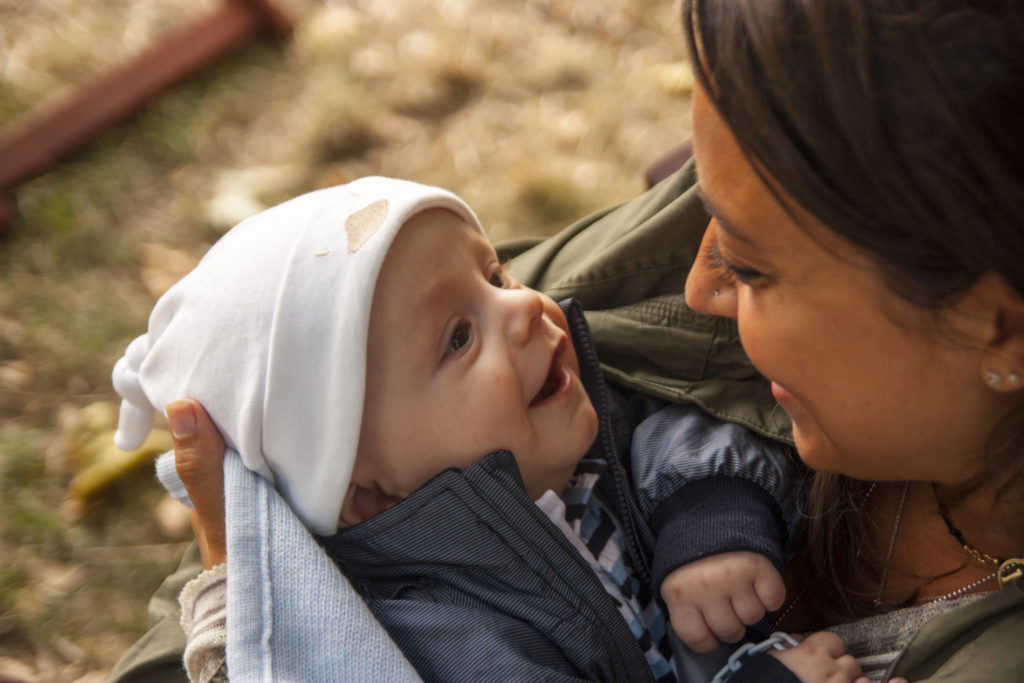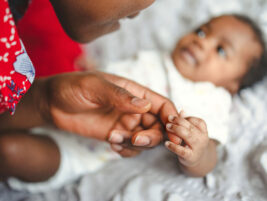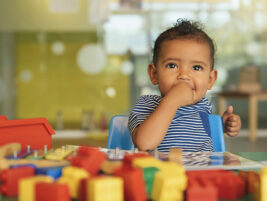Perhaps one of the reasons why attachment theory has gained such acceptance in present day Latvia, especially among students and young parents, is that the message which attachment theory holds was so noticeably missing during the Soviet period. Information about attachment theory came to be generally available in Latvia beginning in 1998 with the publication of “Drošais pamats”, the translation to Latvian of John Bowlby’s “A Secure Base”. The translation of Bowlby’s book was sold in general book stores, and upon its reading the following reaction was fairly typical: “If only this book had been available when my children were young, then I would have raised them completely differently.”
As mentioned in the above articles by Kaspars Tuters and Zaiga Blaua, during the Soviet period there was minimal opportunity for exchange of information with Western Europe or North America, and the principles of attachment theory were not among those to penetrate this border and to become known in Latvia. However, shortly after the border was opened and the free flow of information became possible, then gradually during the 1990’s John Bowlby and other attachment theorists became familiar to practicing professionals as well as students. One psychology student, upon learning the principles of attachment theory in her university studies during the 1990’s commented as follows: “During the Soviet period (in Latvia, author’s comment) it was not accepted for parents to show love and emotional warmth toward their children. Parents attempted to be emotionally distant so as not to ‘spoil’ the child”.
It became quite apparent that there was a very great need for a parenting program in Latvia, which would include both psycho-educational aspects about the necessity of parental sensitivity and emotional warmth in raising one’s child, but also would include an opportunity for young parents to reflect upon their own childhood experience of being raised according to previous parenting principles, and to discuss their willingness to appropriate new approaches to raising their children in the present. Such an opportunity arose in 2003 when Canadian-Latvian psychologist Edīte Ozola brought to Latvia the basis for the first structured parent training program – “Bērna emocionālā audzināšana”, referred to in Latvia as the “BEA program”, and translated to English as “Encouraging the Child’s Emotional Development”. This training program for young parents was initiated in Latvia upon the basis of a program developed in Canada by psychologists Sarah Landy and Elizabeth Thomson (Landy & Thompson, 2006). The original program developed in Canada was translated and adapted for use in Latvia by Dr. Ozola, working together with psychologists from the University of Latvia (Lendija & Ozola, 2004). The project has received financial support from the Canadian Embassy, the Latvian Ministry of Child and Family Affairs, and private foundations.
The “BEA program” is a group-based parent training program which involves weekly group sessions of 2 hours in length, with a total of 10 – 11 sessions. Within each group 8 – 12 parents participate. Although both parents are encouraged to attend, usually the groups have consisted mostly of mothers. Each group has two group leaders, most often psychologists who have been especially trained to use the BEA program and who are knowledgeable in early child development, family systems, parenting and group dynamics. The BEA parent training takes place in both local governmental social services centers, non-governmental agencies such as centers against child abuse, and psychologists’ private clinics and practices. Although there is no precise data on the numbers of parents who have participated in the BEA program, it is estimated that at least 2,500 parents have received this training.
The BEA program encompasses various goals, including the goal of enhancing parents’ knowledge of early childhood development, and an understanding of the need for the child to receive both emotional warmth and appropriate structuring. The program is also organized so as to help parents understand the influence of their family of origin experiences on their current parenting practices, to reflect upon those experiences which they hope to continue or to discontinue in regard to their own children. The program is aimed to encourage parents to develop positive attributions of their child and to reframe negative attributions, with the broader goal of enhancing the parent-child interactions and developing secure attachments. The program provides parents with specific strategies to manage their child’s behavioral or emotional difficulties. In turn, the program is geared to enhance both parents’ feelings of self-efficacy and also the child’s feelings of positive self-esteem.
During each weekly session the group is presented with a specific topic, such as child temperament, positive body image, secure attachment, language and communication, self-regulation and social competence. Each session includes both psycho-educational presentations by the group leaders, opportunity for reflection and discussion, and weekly homework assignments related to the session’s topic.
The effectiveness of the BEA program in Latvia has been studied by Inga Skreitule-Pikše (in print), based upon a sub-group of 60 mothers who participated in the BEA program and 46 mothers who were included in a control group. The mothers were asked to complete questionnaires concerning child behavior and their parenting sense of competence pre and post training, as well as at 6 month follow up. The results of the study showed that mothers’ participation in the parent training program led to an increase in the mother’s sense of parenting competence and a decrease in child internalizing and externalizing behavior problems. These changes remained consistent at the 6 months follow-up. Additional pre and post training home video observation of 20 mothers showed that mother-child emotional availability was increased at the post-training video observations (Skreitule-Pikse, Sebre & Lubenko, 2010).
The BEA parent training was in 2007 also adapted for preschool teachers in Latvia by Sebre and Skreitule-Pikse. Similarly as with the parent training program, the preschool teacher training program was also structured as a series of 10 – 11 weekly group meetings with 10 – 12 participants in each group and two group leaders. Each session was based upon similar psycho-educational topics as with the parent training. There was also included an opportunity for discussion and reflection upon one’s own childhood experience both within the home and one’s previous schooling . Similarly, homework assignments were included, but modified so that the preschool teacher assignments were based upon their interactions with children in their preschool class. Pre and post training assessments of the preschool teachers were administered and the results showed that at post-training the preschool teachers indicted an increase in their sense of self-efficacy within the classroom, as well as a decrease in their personal somatic complaints, anxiety and depression symptoms. The preschool teachers noted that as a result of the training programs they gained not only new information, increased understanding of child development, but also increased self-esteem and greater understanding of themselves.
The interest in attachment theory in Latvia has also resulted in several studies regarding the associations between attachment styles and experience of abuse. It has been shown ( Bite, 2003) that in Latvia both men and women who are involved in abusive intimate relationships indicate experience of childhood emotional and physical abuse, as well as preoccupied attachment style. In a study of continuation vs. discontinuation of abusive behaviors which parents experienced as children in comparison to their present parenting behaviors, it was shown that the continuation of abusive behaviors is most prominent for mothers with preoccupied attachment style (Sebre & Lebedeva, 2006). In Latvia attachment story-stem endings indicate insecure attachment representations for those children who report family abuse experience (Pirsko, 2008). The results of this study also indicated that there are socio-cultural differences in regard to specific story-stems which are more or less revealing of negative parent-child relationships within a specific socio-cultural setting.
In conclusion, it can be said that there is now in Latvia a firm foundation and a relatively broad base of professionals, students and young parents who have gained at least an initial understanding of the importance of secure attachment within the parent-child relationship, as well as understanding of the positive parenting behaviors which facilitate secure attachment. Not only is the BEA program each year becoming available to increasingly greater numbers of young parents, but also professionals who understand the importance of secure attachment are incorporating additional programs within their centers, such as the preventive program for young pregnant mothers developed by Karl Heinz Brisch, which is now being implemented in the Center Against Abuse “Dardedze”. The importance of secure attachment is beginning to find a secure base in Latvia.
References
Bite, I. (2003). Adult attachment styles, childhood abuse experience and violence in intimate relationships. Baltic Journal of Psychology, 3, 19 – 33.
Landy, S. & Thompson, E. (2006). Pathways to Competence for Young Children. A GroupProgram for Parents of Children From Birth to 7 Years of Age. Group Leader Manual. Baltimore: Paul H. Brookes Publishing Co.
Lendija, S. & Ozola, E. (2004). Bērna emocionālā audzināšana. Vecāku apmācības programma. Rokasgrāmata grupu vadītājiem. (Encouraging Child’s Emotional Development. Parent Training Program. A Manual for Group Leaders.) Rīga: Apgāds “Rasa ABC”.
Pirsko, L. (2008) Chidren’s narrative attachment representations in relation to experience of abuse. Baltic Journal of Psychology, 9, 112 – 128.
Sebre, S. & Ļebedeva,L. (2006) Piesaistes stils, dusmas un vardarbības starppaaudžu pārmantojamības pārtraukšana.(“Attachment style, anger and intergenerational transmission of abuse”) LU Raksti – Psiholoģija, Rīga: Latvijas Universitāte, 34 – 53 lpp.
Skreitule-Pikše, I. (in print). Effectiveness of the parentē training program “Encouraging Child’s Emotional Development”. Baltic Journal of Psychology, accepted for publication.
Skreitule-Pikse, I., Sebre, S., Lubenko, J. (2010) Child behavior and mother-child emotional availability in response to parent training program: moderators of outcome. Procedia – Social and Behavioral Sciences, 5, 1418 – 1424.
The above text was presented as a lecture at the 12th Congress of WAIMH in Leipzig June 30 – July 3 2010: Attachment-based parent and preschool teacher training and research programs. Sebre S. (University of Latvia, Latvia), Pirsko L. (University of Latvia, Latvia), SkreitulePikse I. (University of Latvia, Latvia), Miltuze A. (University of Latvia, Latvia)
Attachment-based parent and preschool teacher training and research programs in Latvia
Authors
Sebre, Sanda,
Skreitule-Pikse, Inga,
University of Latvia,
Department of Psychology.
Latvia








